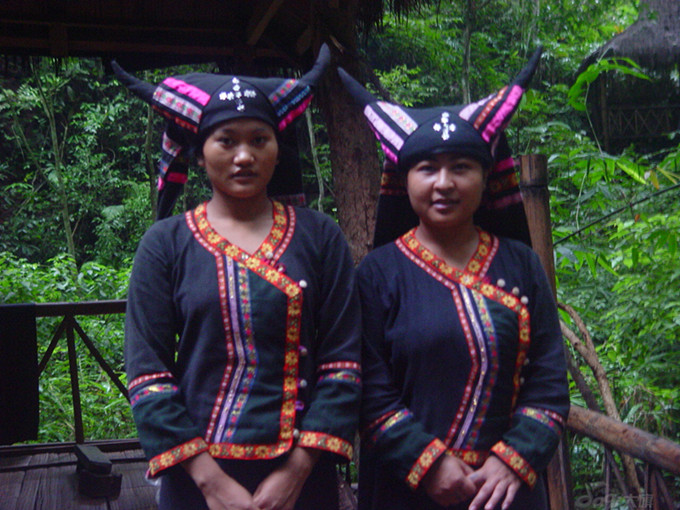

The Aini people are particularly known for their elaborate costumes.They dress differently as they age, changing their head ornaments in particular. But whatever the changes, silver ornaments always play a significant role.
Many Aini women like to use silver dollars as head ornaments. Most of the coins, dating back to the Qing Dynasty (1644-1911), have been worn for generations.
In each family, the mother passes her silver ornaments onto her daughter. The most valuable family treasures are worn by women.
Young Aini women begin to study weaving and embroidery at the age of 18.
Their enthusiasm for dressing up is unparalleled - whenever they go out, they take care with their appearance. Even when they are going to work in the mountains, they put on their jewels and ornaments.
"Young women are expected to look pretty and well-dressed. That's an important aspect of our culture," said Siche, a 75-year-old "Nipa" in another village named Pasa.
Most of the "Nipa" are middle-aged women who are believed to have magical powers and help villagers cure diseases. They also treat sick people by preparing special teas made from herbs and roots.
Siche used to work with the local women's federations and became a "Nipa" at the age of 56.
"No matter if I'm a federation member or a 'Nipa,' my job is to help my villagers," said Siche.
Like most of the Aini women, Siche was proud of her head ornaments - some silver dollars dating back to the Qing Dynasty are part of her life savings. Two were given to her by her husband while most of the others she earned herself.
Siche's clothes seem similar to those worn by others, except for two strings of lugu - the fruits of a local wild plant.
Siche told us the lugu was once used to decorate traditional Aini costumes. But women nowadays prefer to decorate their clothes with glass and plastic beads.
Jialuo, 73, the oldest man in Pasa Village, is probably one of the few who have an indepth understanding of the lugu.
"The marriage is confirmed by lugu. If a married women does not have twin babies, she must keep the lugu until her death," Jialuo explained.
Women used to wear costumes decorated with the lugu at ceremonial occasions such as weddings and funerals, he added.
You will only receive emails that you permitted upon submission and your email address will never be shared with any third parties without your express permission.
